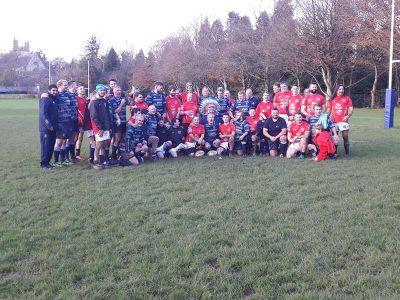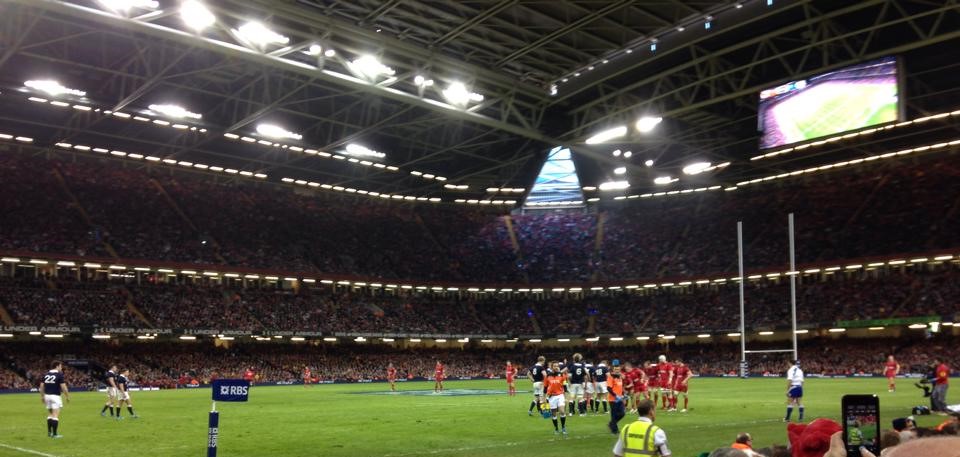How do the 2012 Rugby Union team compare to the players of 1978?
The hookers:
Ken Owens
DOB – 3/1/87
Height – 1.85 m (6ft 1in)
Weight – 109 kg (17st 2lb)
Bobby Windsor
DOB – 31/1/48
Height – 1.75m (5ft 9in)
Weight – 93kg (14st 9lb)
The props:
Aaron Jarvis
DOB – 20/5/86
Height – 1.83 m (6ft 0in)
Weight – 122 kg (19st 2lb)
Charlie Faulkner
DOB – 27/2/45
Height – 178cm (5ft 10in)
Weight – 98kg (15st 6lb)
The locks:
Bradley Davies
DOB – 9/1/87
Height – 1.98 m (6ft 6in)
Weight – 115 kg (18st 1lb)
Geoff Wheel
DOB – 30/6/51
Height – 195cm (6ft 4in)
Weight – 106kg (16st 9lb)
The back row players:
Josh Turnbull
DOB – 12/3/88
Height – 1.93 m (6ft 4in)
Weight – 112 kg (17st 8lb)
Terry Cobner
DOB – 10/1/46
Height – 1.83m (6ft 0in)
Weight – 91kg (14st 4lb)
The rugby tackle is often compared to a car crash. Is rugby becoming too physical and is enough being done to protect the players?
A yearly income of £20,000 wired to a bank account and £10 in a brown envelope stuck in your boot as you come off the pitch on a Saturday afternoon. The ways in which rugby players are paid for their efforts have certainly altered in the last few decades but, when it comes to the changes caused by professionalism, this is just the tip of the iceberg. In fact as the game gets faster, tougher and more elite the whole face of Welsh rugby could be irrevocably changed.
In the past players needed to hold down a full time job, as well as representing their team on the pitch twice a week. Tiredness and drinking could easily lead to a severe injury and players received no kind of psychological care. Today the story is a very different one, says WRU press officer Alex Bywater, 23. Players are subject to “stringent health and fitness training”, take regular trips to Poland to use the cryotheraphy chambers and receive personal development sessions.
Colin Riley, 65, played rugby for Pontypridd up to today’s professional levels in the early 70s and 80s. “I worked in the day time, played two nights a week and trained another two. I went to the gym once a week and I was probably the only one,” he said. “I can remember coming off after games and I would just feel really sore and really tired.”
The toll of the game
Players from every generation suffer the ever-present threat of injury while playing high level rugby. Colin sustained multiple muscle strains, “That was because of lack of intelligence, lack of education by myself and on the part of the coaching staff. I over trained.”
Physical support for rugby players has certainly improved since Colin’s day but he says that nowadays it’s the more physical aspect of the game that is responsible for players’ injuries. “You’ve got 18-stone guys coming at you now where as in my day they would only be about 15-stone.”
Will Hartland, 19, who plays for the Tewkesbury Rugby Football Club first team, says that as pressure to win increases so does the need to train harder, go to the gym more and watch your diet. He says that even in a small club he needs to train for about ten hours a week, but even this isn’t enough to avoid injury. “As a smaller than average male I tend to get injured more,” he said “I’ve torn ligaments in my neck and in my thumb and had to have stitches in my lip and knee.”
This autumn more than half a dozen of Wales’s players have sustained serious injuries. Alex however puts the recent spate of injuries down to nothing more than Wales’s bad luck. “There is no doubt the game is becoming physically tougher,” he says, “but the players prepare for this accordingly.”
It is not just the physical aspect of the game that can take its toll on players. With the pressure of a nation hanging on their shoulders it can be hard to face another team across the field.
“You get nervous,” says Colin, “I was in a time when there were a lot of good welsh players around. Playing against them was not easy. You never got any help in terms of any kind of psychology, that was un-thought of then.”
Pre-match pep talks at that time consisted mainly of being shouted at for ten minutes during the warm up according to Colin, and it never had much of an effect on him. Today players receive far more help, with sports psychology being an accepted and used science. The WRU provide coaching in media training and instruct players on how to juggle their sport alongside their personal life.
There is no doubt about the fact that playing rugby us a lifestyle choice. “Rugby is in the mind for six of the seven days of the week,” says Colin, “it used to take a big chunk of my thinking in terms of controlling what I did.”
Changing Times
The protection of rugby players may have improved but as the game gets tougher and faster and the players are forced to train harder it seems as though Welsh rugby is getting further from its small town roots.
New GPS systems, which are being used to measure the force of rugby tackles, estimate that the force may be equal to a fall from 12ft and though their bodies are trained to deal with these impacts fatigue from overwork and travel is always a factor that can lead to injury.
With the game becoming more elite are players becoming more machine than man? Colin remembers his time as a player as a more relaxed affair. “There used to be a really friendly atmosphere, none of these buses and stuff, we just used to get off the train and walk,” he said. “It was a great time, a big rugby family and that’s all sort of shrunk and gone.”
How do the 2012 Rugby Union team compare to the players of 1978?
The hookers:
Ken Owens
DOB – 3/1/87
Height – 1.85 m (6ft 1in)
Weight – 109 kg (17st 2lb)
Bobby Windsor
DOB – 31/1/48
Height – 1.75m (5ft 9in)
Weight – 93kg (14st 9lb)
The props:
Aaron Jarvis
DOB – 20/5/86
Height – 1.83 m (6ft 0in)
Weight – 122 kg (19st 2lb)
Charlie Faulkner
DOB – 27/2/45
Height – 178cm (5ft 10in)
Weight – 98kg (15st 6lb)
The locks:
Bradley Davies
DOB – 9/1/87
Height – 1.98 m (6ft 6in)
Weight – 115 kg (18st 1lb)
Geoff Wheel
DOB – 30/6/51
Height – 195cm (6ft 4in)
Weight – 106kg (16st 9lb)
The back row players:
Josh Turnbull
DOB – 12/3/88
Height – 1.93 m (6ft 4in)
Weight – 112 kg (17st 8lb)
Terry Cobner
DOB – 10/1/46
Height – 1.83m (6ft 0in)
Weight – 91kg (14st 4lb)




